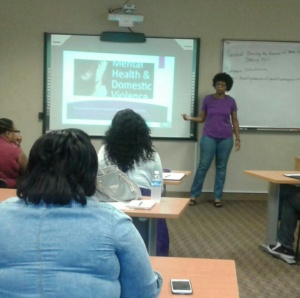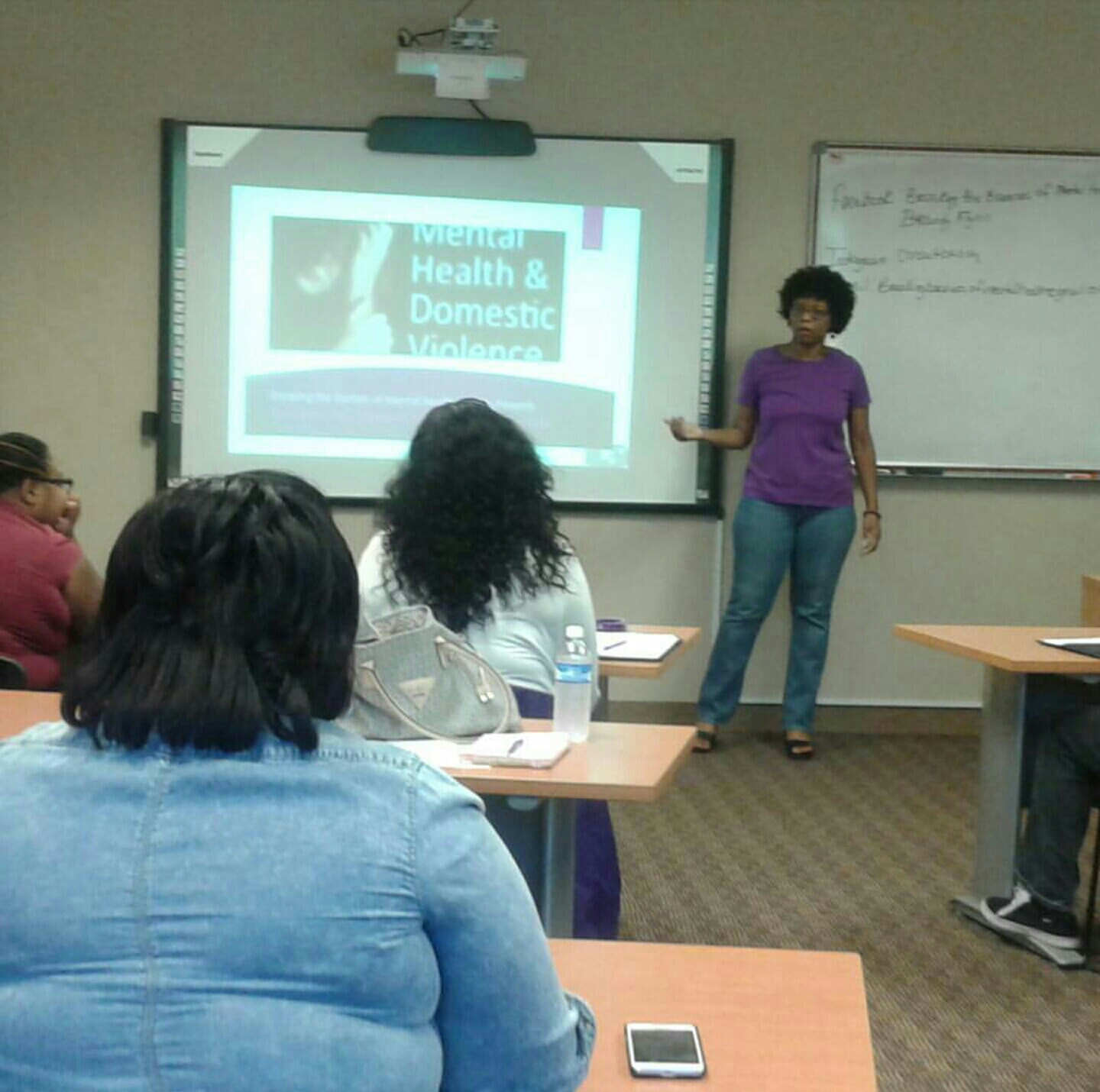 This weekend, I had the opportunity to speak at a monthly forum called The Mental Discussion. Hosted by Mental Health Therapist Brandy Flynn, the purpose is to bring community awareness on issues related to mental health as well as the various intersections. This month, she wanted to address the intersections between mental health and domestic violence.
This weekend, I had the opportunity to speak at a monthly forum called The Mental Discussion. Hosted by Mental Health Therapist Brandy Flynn, the purpose is to bring community awareness on issues related to mental health as well as the various intersections. This month, she wanted to address the intersections between mental health and domestic violence.
While I touched on several points, the most significant one I want to share in this blog is that of Post Traumatic Stress Disorder or PTSD. As described by the US Dept of Veteran Affairs, PTSD is a mental health problem that can occur after a traumatic event such as war, assault or disaster. So often, many of us only think of PTSD as a condition exclusive to war veterans. Before I had a true understanding of PTSD, I made the same assumption. As I began to learn more about myself on the survivor’s side of abuse, I realized that there were certain images made me nervous to the point of hand tremors and even insomnia. There are certain movies I cannot watch and conversations for which I cannot participate. I used to think that something was wrong with me. I mean, after all, it’s just a movie or it’s just a conversation. I believed that I needed to just accept that and get over it.
PTSD is very real for anyone who has gone through a traumatic experience. It becomes active when a person is exposed to certain triggers. They are different for everyone. For some, it may be gunfire which reminds them of a traumatic experience in their lives. For others, it may be a particular genre of music. It’s important to let your doctor or counselor know if you think you may be suffering from PTSD. They will be able to discuss the signs and options for help.

